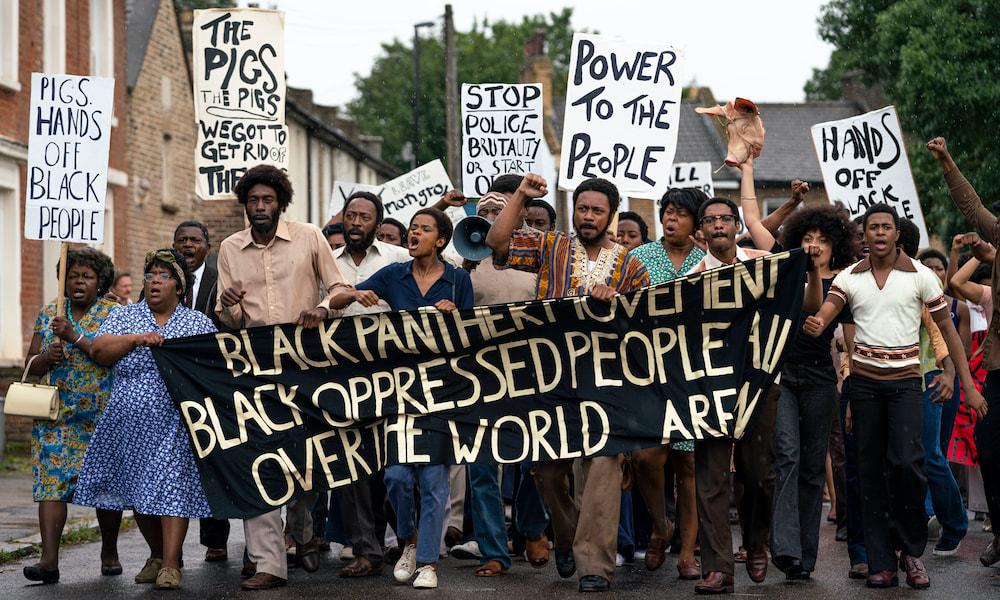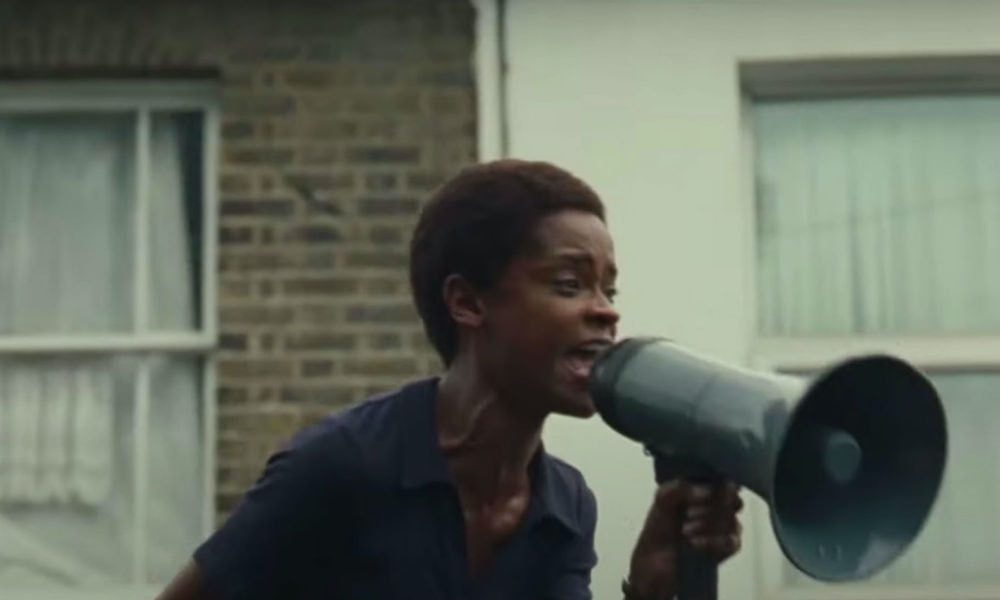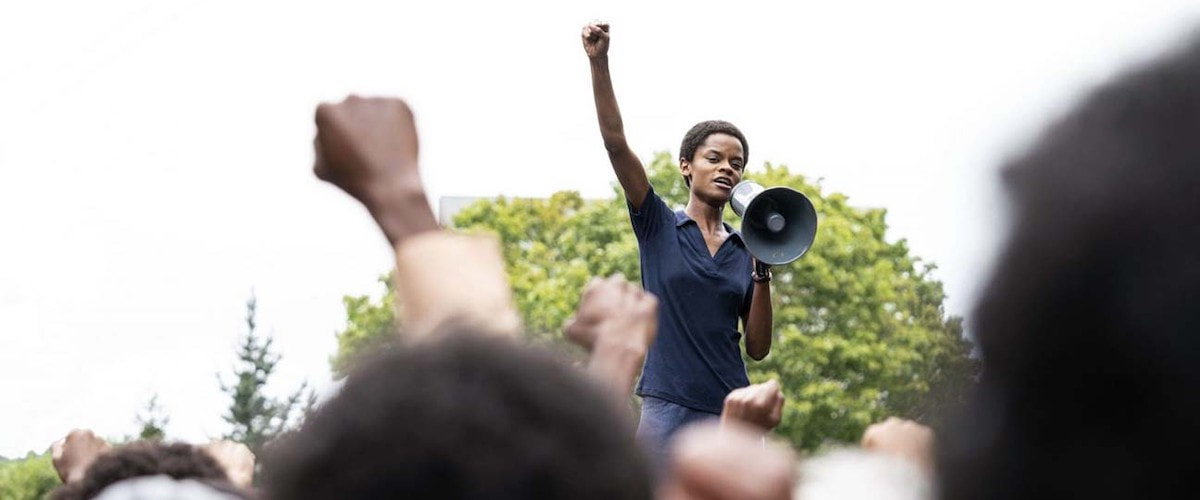|
By Adam Ray Palmer Steve McQueen is back on the big screen with his new five-film anthology. Two of the features are debuting at the London Film Festival this year. Later in the festival we have his Lovers Rock, but today I am looking at his powerful and moving Mangrove… Mangrove tells the true story of Frank Crichlow (Shaun Parkes), whose West Indian restaurant, Mangrove, a lively community hub in London’s Notting Hill attracted locals, activists, intellectuals and artists. Set in 1971, with blatant racial discrimination taking place on the streets, in restaurants and even in courts; Crichlow finds himself and his drug-free business the brunt of relentless police raids. Frank and his innocent friends decide to try and stop the discrimination that keeps coming to their door, time and time again. As the community take to the streets in a peaceful protest, they are met with police aggression and brutality. As a result, nine men and women, including Frank, leader of the British Black Panther Movement Altheia Jones-LeCointe (Letitia Wright), and activist Darcus Howe (Malachi Kirby), are wrongly arrested and charged with incitement to riot and affray. What ensues is a highly publicised and historic trial. McQueen and Alastair Siddons’ (co-writer) Mangrove is bold, important filmmaking. The story is needed now more than ever, depicting the unnecessary struggles that the black community (in this case, West Indians) have had to endure for many decades. Frank Crichlow opened the Mangrove restaurant in 1968 in Notting Hill where at this time, it was a very different one from what we know it as today. Immigrants that arrived from the West Indian islands from 1948-1971, known as the “Windrush generation,” sought cheap rent and community in the area, and found the Mangrove as a place of solace. The restaurant became a community meet up, a place for great food, chilled chats but also a place of support; where the Black community could come for advice about housing and job applications. Then, once the authorities knew the Mangrove had become a place of company and compassion, the police would impose unlawful raids which led to Frank making a formal complaint to the Council. The police continued their harassment and so the Mangrove Nine became known. A group of victims who were tried against for rioting and affray. The way in which McQueen tells this story is superb. Steve and his cinematographer Shabier Kirchner capture every scene with such intent. The close-ups and the framing of the background is a constant thought. The scenes in the streets are a testament to how much the visual terrain varies. There’s so much going on, but there still seems to be a central focus for your eyes. Wright and Parkes are so captivating in their roles and the camera lens does them justice. The same masterful compliment can be said to costumer designer Lisa Duncan and the killer choices in the soundtrack. Duncan’s authentic roll neck jumper styling really places you back in the heart of 1970 and this accompanied by a Toots and the Maytals or a Symarip classic tune tops the sequences off. But for me, there’s one scene that really encapsulates the film well. The final verdict court sequence with the Mangrove Nine in the dock is as revealing and intimate as a film can get. The “Closing Time” speech from Malachi Kirby is extremely powerful, moving and necessary. It’s a commanding yet fragile piece of film that I could play on repeat. This one section is like a short film within a film. It makes you take note, be emotionally attentive and requires you to listen. That’s what needs to happen, in general. We have to listen, take note and make actions. Steve McQueen’s Mangrove is a brilliant piece of art that will only help with support the wider discussion in the current climate. Bravo, sir. Cineroom’s rating: 5 stars Mangrove is released on BBC and Amazon Prime on 15th November 2020. Leave a Reply. |
Previous
|





7/10/2020
0 Comments